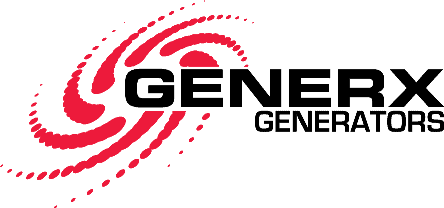Living in a State like Florida has its perks, beautiful beaches, sunny weather, and a vibrant lifestyle. However, it does come with some challenges, especially during hurricane season when power outages become way too common. Regardless of if the outage comes from severe weather, utility maintenance, or any other circumstance, not having power can be inconvenient and even dangerous, making backup power a necessity. In this blog, we will equip you with the knowledge to buy the right residential backup generator.
Why Do You Need Backup Power?
The tropical climate in Florida makes it prone to hurricanes, thunderstorms, and other extreme weather conditions, resulting in widespread power outages. In those cases, you never really know how long a power outage is going to last or when they’ll happen. Not only will this compromise your comfort, but your food supply may spoil, and if you need important health systems to be powered it becomes more of a concern. This is why having a residential backup generator is needed.
Factors to Consider When Choosing a Residential Backup Generator
- Power Capacity: Your power needs are going to be based on your individual home. First, you’ll need to figure out what appliances and systems you want to keep running during a power outage. Then, find the wattage needs of those appliances and systems (you can look this up online with their model name/number or find it on the machine!) and total them all up.
- Fuel Type: Most residential backup generators run on either natural gas, propane, or diesel. The area you live in will mainly determine what fuel you go with as prices and availability will differ. To get you started, here’s some information on each type of fuel. Natural gas is great if your area already has access to natural gas lines because you won’t have to worry about supplying fuel. Propane tanks need to be refueled periodically but can be stored for a very long time. Diesel provides high power outputs, but may need the most maintenance.
- Transfer Switch: A transfer switch is used to transfer power from the grid to your generator during a power outage and vice versa when the power comes back on. There’s two types, manual and automatic. Manual means you’ll have to go and switch the power yourself, and automatic means the transfer switch will detect an outage and change your home’s power source to the generator.
- Noise Level: If you live close to neighbors or if noise is a concern for you, make sure you look at how loud the residential backup generator is when it runs. Most modern generator models come with noise-reduction features but it’s still a good thing to look at.
- Installation and Maintenance: When you’ve selected a residential backup generator, or have a few in mind, you need to remember that the upfront cost isn’t the only price to consider. There is also the cost to install the generator and keep it running.
Getting Professional Help
Getting professional consultation can make finding the right residential backup generator much easier. With professional insight and extensive generator knowledge, a reputable company such as GenerX Generators can help you make the best decision. We are happy to guide you through the process so that your operations don’t get brought to a halt, just click here to contact us.
Get constant comfort, convenience, and confidence in knowing your home will be up and running no matter what happens with GenerX Generators. As a Premier Generac Dealer, we sell, install, service, and maintain Generac Generators, one of the most well-established and trusted brands on the market.
Get a FREE Quote Today or Contact Us Here for any of your generator needs.
Working in and around areas of Florida, here is a full list of our service areas.

